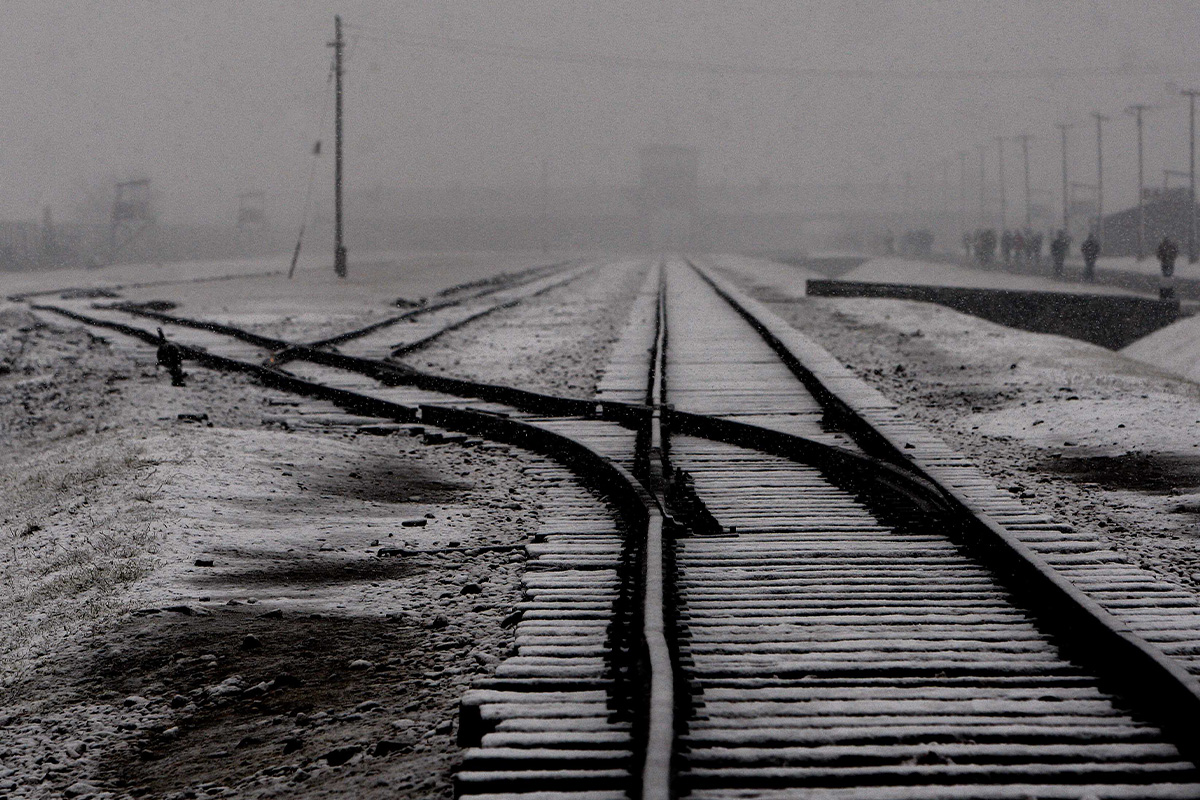In the opening notes of “Different Trains,” Steve Reich writes:
“When I was one year old, my parents separated. My mother moved to Los Angeles and my father stayed in New York. Since they arranged divided custody, I traveled back and forth by train frequently between New York and Los Angeles from 1939 to 1942, accompanied by my governess. While these trips were exciting and romantic at the time, I now look back and think that, if I had been in Europe during this period, as a Jew I would have had to ride very different trains.”
The piece was written in 1988 for string quartet and pre-recorded performance tape — it uses audio samples of Holocaust survivors and Reich’s governess talking to generate melody. Reich plays short snippets of speech, such as “from Chicago to New York,” “flames going up in the sky” and “they tattooed a number on our arm.” He transcribes the pitches and rhythm of the speech into the string quartet music. The 27-minute-long work features three parts: “America, Before the War,” “Europe, During the War” and “After the War,” which run seamlessly into each other. Both the audio samples and pre-recorded string quartet music are played from loudspeakers, while the live string quartet is amplified alongside it. Due to its technical complexity, it’s rarely performed live, but when it is it’s a really special experience.
As we enter the 77th year since the liberation of Auschwitz, living Holocaust survivors who can share their own stories are becoming more and more rare. In a time when antisemitism is on the rise and authoritarian governments are becoming more powerful, it is more important than ever to preserve the memory of the Holocaust to ensure it is never repeated and to demand people stand up against injustice around the world today. “Different Trains” does this in a very moving way. It includes 47 recorded phrases in all, some of them as simple as “1939” — yet they tell a very long and emotive story.
Reich is a minimalist composer and uses melodies that are repeated and changed slightly over long periods of time. The result is a sense of a relentless expansiveness; the tempo jolts to different speeds, conveying urgency when fast and anxiety when slow. The second movement tells the story of a Holocaust survivor in Hungary describing his teacher singling him out: “He said ‘black crows invaded our country many years ago’ and he pointed right at me.’’ It’s a stark example of how much emotion can be drawn out from so little.
I first heard “Different Trains” when I was 14 years old and, as a viola player, have wanted to play it ever since. This year, I’m launching an experimental arts collective, Komuna Collective, which aims to bring new experiments in all different genres of music and art together under one roof. We’re performing “Different Trains” at our first event at an underground club in Oxford, England.
At first, it might seem like an odd venue for this kind of music, but to me it makes perfect sense. “Different Trains” is bursting with energy; it carries with it the trauma and poignancy of the testimony it uses, but it doesn’t leave the listener feeling depressed. Instead, it leaves them with a sense of importance, of energy and commitment to keep going and take what they’ve heard with them. The last text spoken is about a young girl “with a beautiful voice” whom the Germans loved to listen to, “and when she stopped singing, they said, ‘More, more’ and they applauded.” This feels like a reminder of the ongoing diverse and exciting Jewish contributions to the arts, of new voices to applaud and new sounds to uncover.
“Different Trains” is also not defined as a work of Holocaust music; it’s not dedicated solely to preserving the testimony of Holocaust survivors. It juxtaposes the experiences of Reich (an American Jew) and Jews in Europe. This means it documents the complex relationship that all Jews have with the Holocaust, whether or not our families were directly affected by it. This is a really important nuance when we consider the importance of Holocaust remembrance and education today.
The Holocaust happened less than 100 years ago — if Anne Frank were alive right now, she would be 93. As evidenced by the recent hostage incident at Beth Israel Synagogue in Colleyville, Texas, antisemitism is something that Jewish people have always had to contend with, and likely always will. Thus, it is part of our identity and something we should culturally interact with and acknowledge.
Aside from being an innovative, evocative and moving piece of work, “Different Trains” is a perfect example of how Jewish creators can negotiate their identities and acknowledge both a shared history and a shared future.
Komuna is launching at Plush in Oxford, UK at 22:00 on February 26th, 2022. You can follow the collective on Instagram and buy tickets here.



